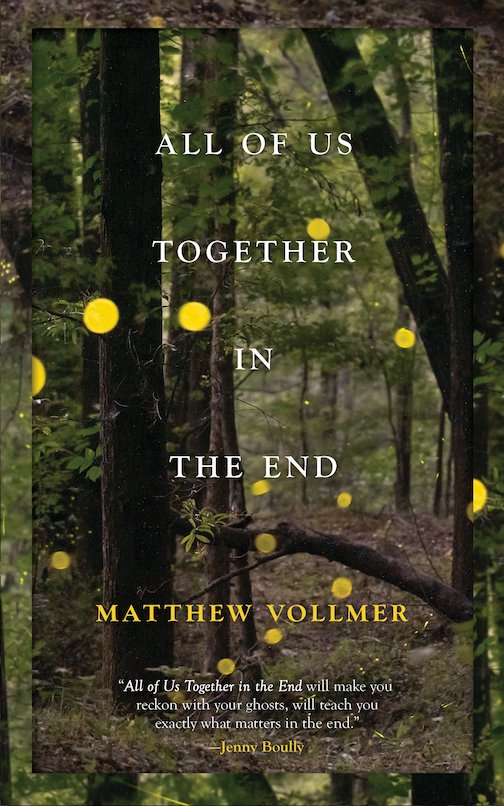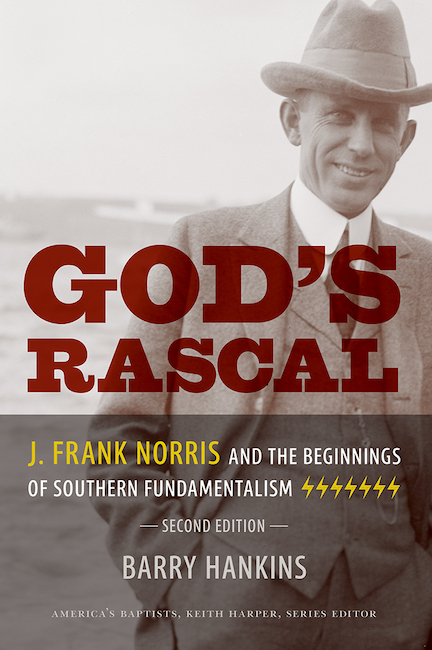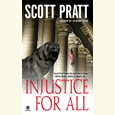Peeking Under Someone Else’s Roof
Beth Ann Fennelly brings poetry to her new memoir in essays
Unlike some memoirs, Heating & Cooling: 52 Micro-Memoirs by Beth Ann Fennelly isn’t focused on one subject. The collection feels like a series of journal entries, though one written by a poet who knows how to harness complex imagery with just the right amount of omission. For readers it offers a rare opportunity to take the roof off someone’s home and peer inside, witnessing moments of absurdity, banality, and wonder.
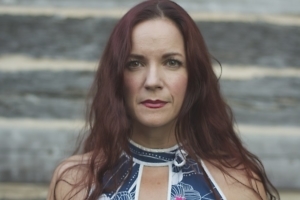
Despite the essays’ brevity, many feature the same kind of complexity typically found in longer essays. “Married Love, V,” the last essay in a series with that title, humorously describes how a piece of gravel imbedded in Fennelly’s palm leads to a moment of marital bliss. A doctor removes the rock with a clawed scalpel and offhand narration—“I’m just gonna rummage around in here until I nab it”—and at home Fennelly holds up her rock like a trophy, a medical moment of “show-and-tell.” Before she throws the bit of gravel away, though, her husband (writer Tom Franklin) tells her that he wants to keep it: “It was in your hand for a month. It was a part of you.”
How does one get from pain to pleasure so quickly? I’m not sure, but a few of these essays use physical pain as a threshold between the conscious and subconscious, as in the powerful essay on natural childbirth titled “What I Think When Someone Uses ‘Pussy’ as a Synonym for Weak.” Another excellent essay, “I Survived the Blizzard of ’79,” also uses pain as catalyst to reflect on how we create memories. In this essay, Fennelly’s father insists on trekking the mile to Sunday mass during a blizzard with his two daughters. The “scalding cold” of Fennelly’s uncovered neck finally forces her to ask for her father’s scarf, which he gives, lovingly wrapping it around her throat. At first this is a happy memory for Fennelly, but later she questions the wisdom of a two-mile roundtrip walk when the temperature is nineteen degrees below zero. But parenting, like memory-making, is a messy process: “For he is below the earth and has been for years and cares not for the ways I remember him, or remember remembering him.”
Beth Ann Fennelly began her career as a poet, and her skills at minimalism and image are in full display with these essays. Some chapters consist of a single sentence, something few writers could pull off. “I Come from A Long Line of Modest Achievers” consists, in its entirety, of this sentence: “I’m fond of recalling how my mother is fond of recalling how my great-grandfather was the very first person to walk across the Brooklyn Bridge on the second day.” Where some of the tiny essays read like epigrams, others read more like tight-fisted poems that have not been broken into lines (a refreshing choice considering how much poetry is prose that has been broken into lines).
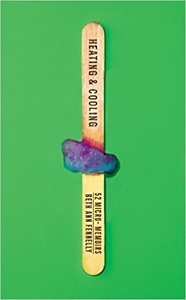 One way these essays move beyond pulses of light like a firefly blinking in the vast dark is that they center on few central characters: Fennelly’s husband, mother, and her recently deceased sister. No single essay is meant to be a complete portrait of any one person in the same way that no single encounter could possibly represent a human being. The micro memoirs somehow speak to this truth better than a more traditional essay, perhaps because their physical length is a reminder that there is always much more to be said. For example, the paragraph-length essay “Proof” quotes the congratulatory card a delivery nurse gave Fennelly’s mother: “Looks like you’ll have to wait for next time to get that son!” Fennelly’s own remark: “It would seem to imply I’ve been a disappointment since the moment I was born.”
One way these essays move beyond pulses of light like a firefly blinking in the vast dark is that they center on few central characters: Fennelly’s husband, mother, and her recently deceased sister. No single essay is meant to be a complete portrait of any one person in the same way that no single encounter could possibly represent a human being. The micro memoirs somehow speak to this truth better than a more traditional essay, perhaps because their physical length is a reminder that there is always much more to be said. For example, the paragraph-length essay “Proof” quotes the congratulatory card a delivery nurse gave Fennelly’s mother: “Looks like you’ll have to wait for next time to get that son!” Fennelly’s own remark: “It would seem to imply I’ve been a disappointment since the moment I was born.”
This essay ends there, but the deep relationship between mother and daughter is further expanded in other essays, such as “Another Reason I Love My Mother”: “At the baby shower, she rejects the pink M&Ms, because pink M&M’s are ‘unnatural.’” What these essays omit is the editorializing—readers aren’t told what to think. Fennelly provides textures, details, and dialogue, and readers form their own opinions from the incomplete information—just as we all do in real life.
Even though many of these essays will allow readers to relax into smiles, a few essays, especially near the end, touch upon the darker sides of life: the unexpected death of a loved one; our limited ability to help our own child; sexual threats. With each essay, Fennelly describes a moment in vivid detail and quickly leaves the scene like a thief absconding with the jewelry box on the dresser, leaving you aware that the air has shifted but unsure exactly how. The collection benefits from these darker essays because they are real; any life—no matter how filled with love and professional fulfillment—can be trying. To pretend otherwise is a deeply rooted American reflex, but believing that life should always be happy, that our path is always one of improvement, makes us more miserable when reality steps in with its oversized loafer.
Reading this collection, it’s impossible to not sense how deeply Fennelly and her family adore one another. I’m happy for her; I’m happy for them; I’m happy for me, being able to peer into this writer’s world. Ultimately, what this book creates is that elusive thing we all want: happiness.
[This article appeared originally on October 13, 2017. It has been updated to reflect new event information.]

Charlotte Pence is the author of one book of poems, Many Small Fires (Black Lawrence Press, 2015), and two chapbooks, and she is the editor of The Poetics of American Song Lyrics. Her work has also been published in Harvard Review, The Sewanee Review, The Southern Review, and Brevity. A Ph.D. graduate of the University of Tennessee in Knoxville, she serves as director of the Stokes Center for Creative Writing at the University of South Alabama.
